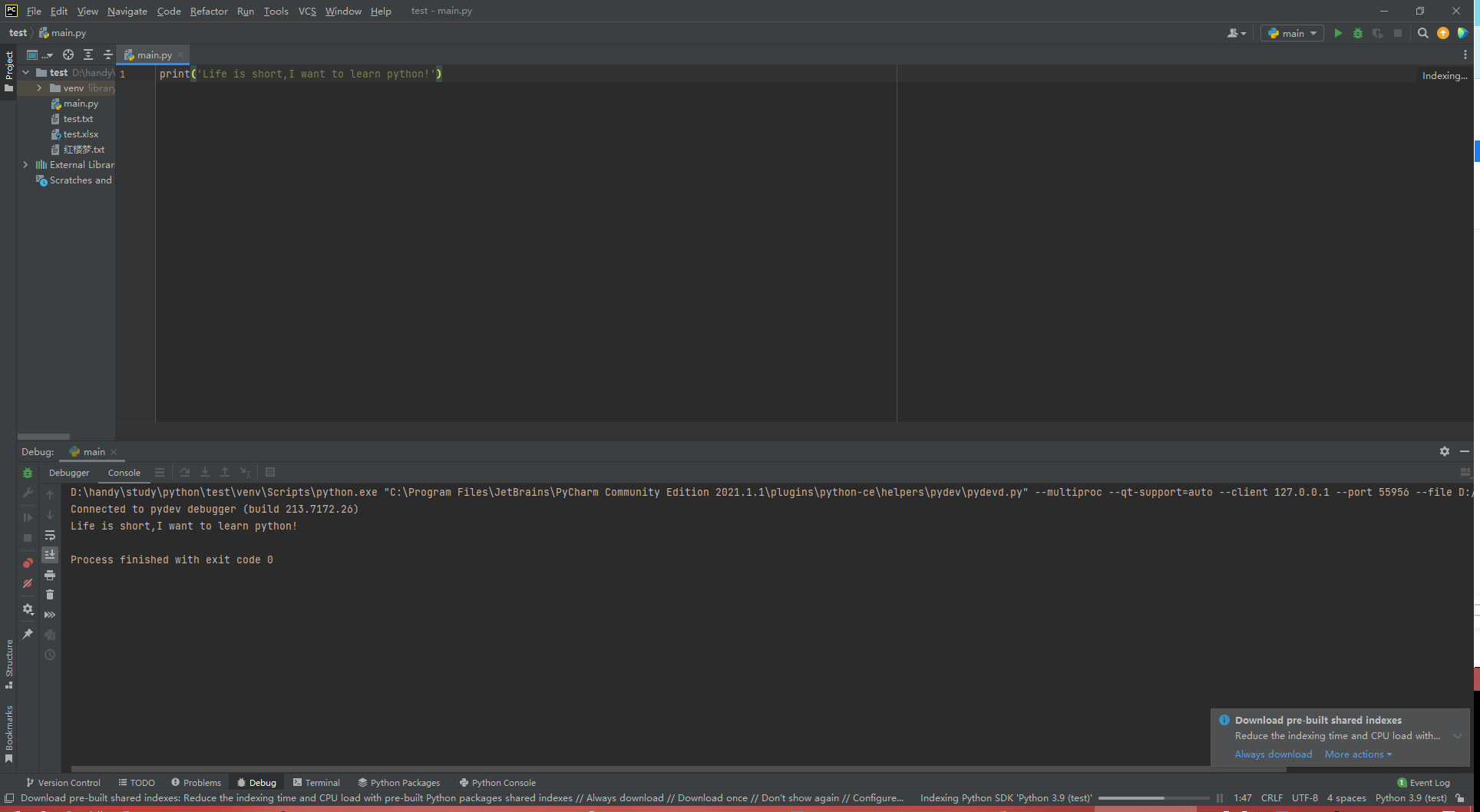-
Notifications
You must be signed in to change notification settings - Fork 0
Description
The core of extensible programming is defining functions. Python allows mandatory and optional arguments, keyword arguments, and even arbitrary argument lists.

First of all, install the PyCharm to configure my python environment.
Try to use the PyCharm to create my first Python program!

(That is not only the Hello world program, but also the big step to study the Python!XD
Let`s code a REAL hello world! lolllll

(U can use the SHIFT + F9 to encode the codes by keyboard)
Let`s try some circle, btw we can use the:
print(' ', end = ' '
let it print for one line.

If u want to input a num not a string as normal?
r = int(input())
Do a math of a circle?

This is the point!
How to print a num in Binary/Octal/Hex!
a = int(input()) str1 = str(bin(a)) print(str1[2:], end=' ') str2 = str(oct(a)) print(str2[2:], end=' ') str3 = str(hex(a)) print(str3[2:])
Here it is!

Let`s do some big!
Try to find the MAX/MIN/AVERAGE num from a num list!
n = int(input()) list1 = list(map(eval,input().split())) Max = str(max(list1)) print('max=%s' % Max) Min = str(min(list1)) print('min=%s' % Min) sum = 0 for i in range(n): sum = sum + list1[i] Avg = sum/n print('average=%.2f' % Avg)

ALL IS GOOD!
And this is my first lesson to study Python, I got really much, see u next time!


